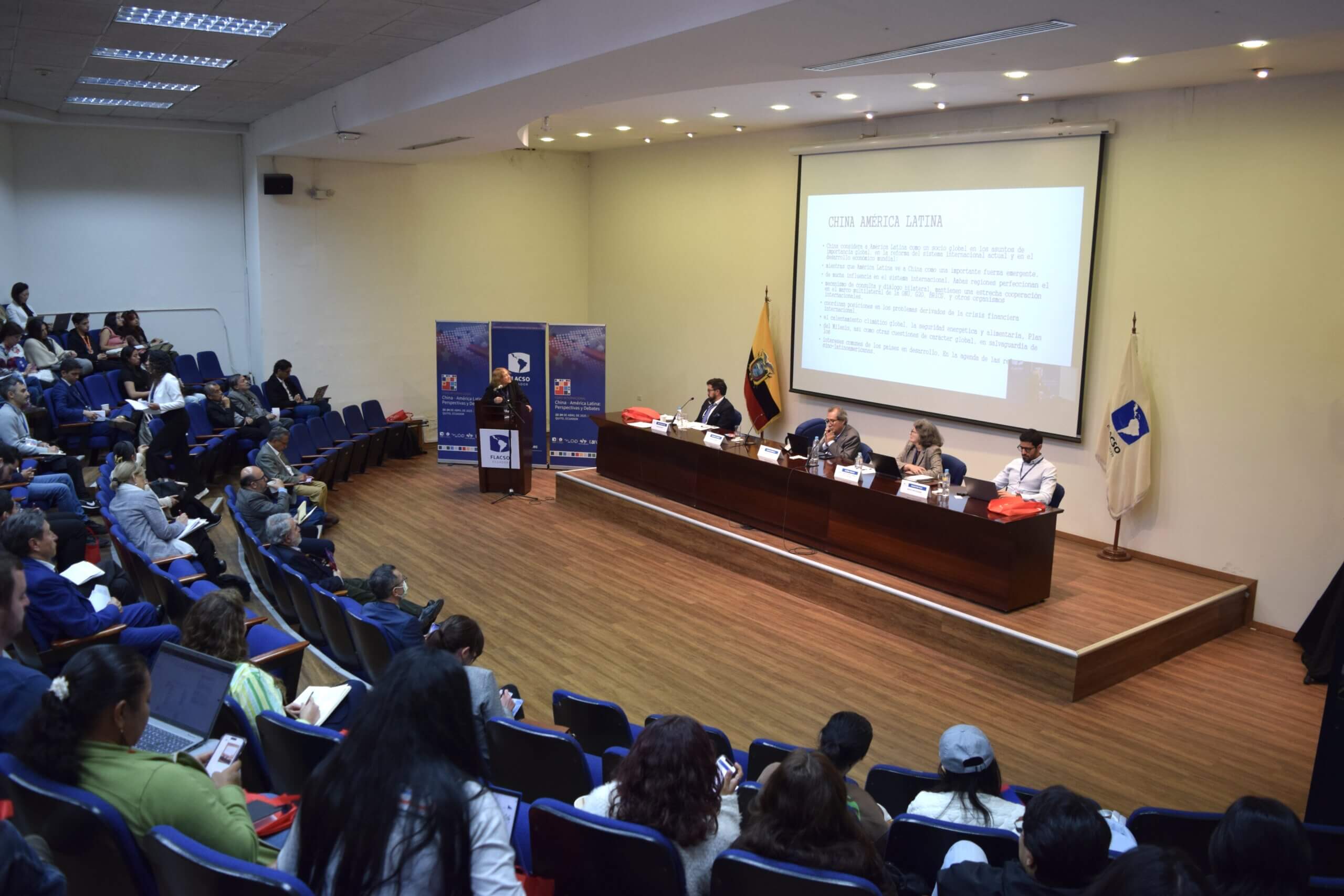Politics, History, and International Relations I
The first panel of the forum addressed China’s role in Latin America from a political, historical, and strategic perspective.
Marisela Connelly opened the session with her presentation titled “Latin America in China’s Foreign Policy: 2013–2024,” analyzing the main components of China’s foreign policy toward the region. She emphasized how China’s strategy adapts to the country’s shifting objectives across different political cycles. Connelly highlighted the transformation of China’s foreign policy under Xi Jinping, who has ushered in a new era of global activism through initiatives such as the Belt and Road. This strategy is grounded in the notion of the “Chinese Dream,” a narrative of national revival following a historical period of humiliation. Within this context, Latin America is positioned as part of China’s global outreach to the Global South, prompting high-level visits, South-South cooperation, and participation in multilateral spaces such as the China–CELAC Forum. These efforts allow China to portray itself as a reliable partner through technical assistance, scholarships, and infrastructure investment.
Adrián Bonilla focused his intervention on CELAC’s capacity to act as a regional interlocutor with China. He noted that despite China’s growing interest in Latin America—particularly in natural resources and infrastructure—only 6% of Chinese exports are directed to the region. This suggests that the relationship is more political and strategic than economic. Bonilla discussed the Belt and Road Initiative (BRI) as a tool of China’s international engagement, while also pointing out its limitations. Both the BRI and CELAC lack clear governance frameworks and accountability mechanisms. He stressed that, although there is political dialogue between China and CELAC, the relationship remains largely bilateral, as CELAC requires consensus among its members to issue joint statements—limiting its effectiveness as a unified bloc.
Gloria Ardaya, from Bolivia, offered a critical view of her country’s bilateral relationship with China, on the occasion of the 40th anniversary of diplomatic ties between the two nations. She underscored the structural asymmetry in the relationship: while China pursues its long-term national interest, Bolivia approaches the partnership from a short-term, ideological perspective. Ardaya outlined three key dimensions: (1) the legal and pragmatic dimension, which encompasses trade and infrastructure projects; (2) over-ideologization, reflected in Bolivia’s permissive stance toward Chinese companies’ labor and environmental practices; and (3) informal or “globalized” relationships, driven by non-state actors—such as business groups—who engage with China independently of the Bolivian state.
Sebastián Ruiz, from Ecuador’s Grupo FARO, presented findings from a study on the impact of China’s growing presence in the Andean region, with a focus on economic, social, and civic dimensions. On the economic front, he addressed free trade agreements (e.g., in Ecuador and Peru), foreign direct investment, and financing—primarily in extractive sectors such as mining and oil. Ruiz pointed to the persistent trade deficit between Andean countries and China, as well as a lack of transparency in state contracts with Chinese companies. In terms of social and civic influence, he highlighted China’s soft power efforts through cultural programs, scholarships, and Confucius Institutes. However, he noted the limited involvement of civil society organizations in shaping these relationships, which reinforces a state-centric model of engagement.
Speakers:

Marisela Connelly Ortiz. Professor at the Center for Asian and African Studies, El Colegio de México.
Country: Mexico
Presentation: Latin America in China’s Foreign Policy: 2013–2024

Gloria Ardaya Salinas. Center for Economic and Social Research (CIDES-UMSA)
Country: Bolivia
Presentation: Ideology Matters More than the Nation

Adrián Bonilla. Latin American Faculty of Social Sciences (FLACSO Ecuador)
Country: Ecuador
Presentation: Strategic Scenarios in China–Latin America and the Caribbean Relations

Sebastián Ruiz. Grupo FARO
Country: Ecuador
Presentation: China and the Andean Region: Transformations in Economic, Social, and Civic Relations

